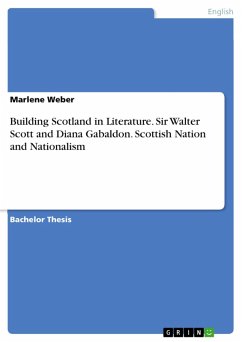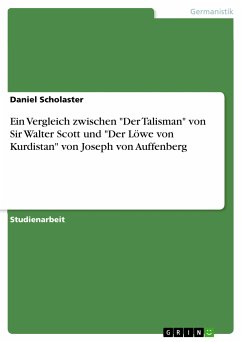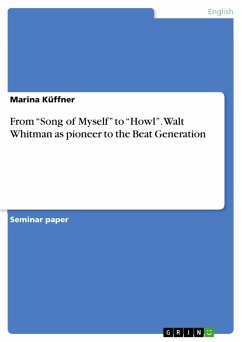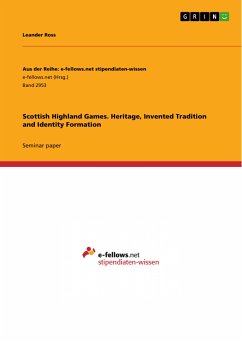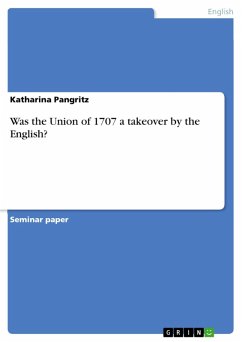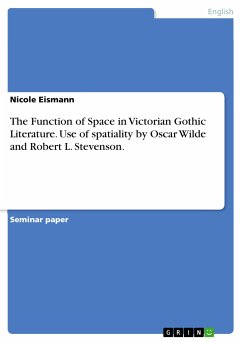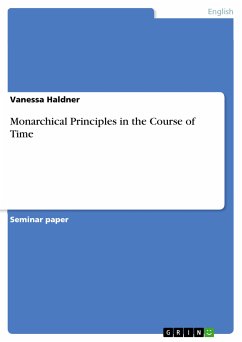Bachelor Thesis from the year 2016 in the subject English Language and Literature Studies - Literature, grade: 2,0, LMU Munich (Englische Philologie), language: English, abstract: The thesis will consider the concept of national identity focusing primarily on the period between 1746 and Scott¿s lifetime (he died in 1832); in addition to examining how the manifestations of Scottish identity during this period continue to resonate in mass media today. This period is especially important with regard to the Jacobite Rebellion and its implications after its defeat at Culloden. This lost battle not only ended the Stuart aspirations for the Scottish-English throne, it also marked the start of a brutal campaign against the Highland culture and Gaelic language with the aim of erasing it (cf. Oliver 2011: 320f.). In retrospect, Scottish nationalism became de facto extinct in the decades that were to follow. In Scott's early lifetime, people were therefore badly informed about their country's history, the clan structure diminished and the Lowlands close to the English border were more attached to England than to their own fragmented country. Many Scots immigrated to the colonies across the Atlantic, and those who stayed were busy trying to survive, with little interest in the past or politics (cf. Oliver 2010: 355f.). The following chapters will outline the development from this fragmented state of affairs towards the deep consciousness of nationality that permeates in Scotland today in addition to how Scott personally contributed to this transformation and how he continues to echo in today's literature (> Diana Gabaldon¿s "Outlander") and popular culture, notably within mass media (> the TV adaptation of the "Outlander"-series on starz) as well as the tourism industry.
Dieser Download kann aus rechtlichen Gründen nur mit Rechnungsadresse in A, B, BG, CY, CZ, D, DK, EW, E, FIN, F, GR, HR, H, IRL, I, LT, L, LR, M, NL, PL, P, R, S, SLO, SK ausgeliefert werden.

